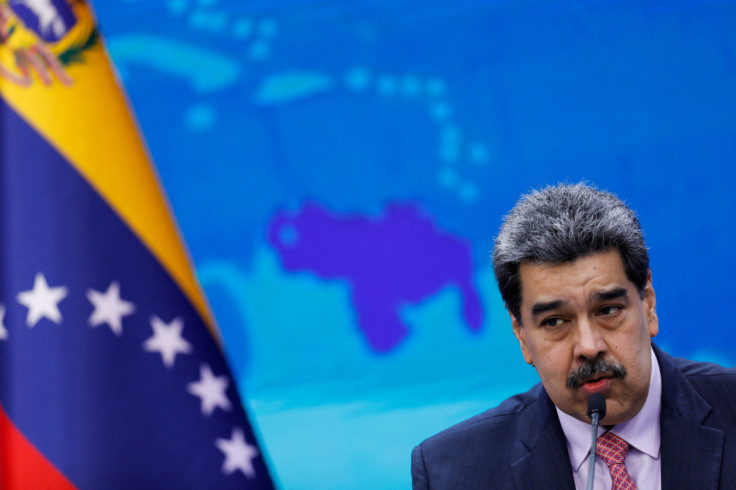
Venezuelan President Nicolás Maduro will face his most challenging election since assuming office in 2013 next July, as polls indicate that his main opponent, Edmundo González, is significantly ahead.
However, an analysis piece by The New York Times has cast doubt on the possibility that Maduro, a seasoned political strategist, will graciously allow a clean contest and leave office should he lose.
Analysts and political insiders suggest that he may be considering various tactics to retain power, including disqualifying González or the parties he represents, manipulating the election process to suppress voter participation, or even canceling or postponing the election by citing a fabricated crisis, such as a border dispute with Guyana.
There is also the possibility of outright vote tampering, a strategy previously used in the 2017 election where the results were manipulated, according to the company that provided the voting technology.
The upcoming election will be closely monitored by the United States. The Biden administration's interest in improving economic conditions in Venezuela has increased as a response to the large influx of Venezuelan migrants to the U.S., posing a significant political challenge ahead of Biden's re-election bid.
Maduro has publicly dismissed the possibility of losing, accusing his opponents of plotting a coup and asserting his confidence in a decisive victory. Maduro, who was handpicked by the late Hugo Chávez, has defied predictions of failure despite lacking Chávez's charisma and political acumen. He has survived numerous crises, including extreme hyperinflation, widespread protests, coup attempts, and an effort by opposition leader Juan Guaidó to establish a parallel government.
Maduro's resilience can be attributed to his ability to quash internal dissent and navigate international sanctions by forging ties with Iran, Russia, and China. He has also maintained the loyalty of his military and political allies through various means, including facilitating their involvement in illicit activities. Despite his low approval ratings, some experts argue that he has never been more secure in his position.
Efforts to undermine the upcoming vote are already evident. Venezuelans living abroad, who are likely to vote against Maduro, face significant obstacles in registering to vote. Only a small fraction of the eligible expatriate population has been able to register, something that watchdog groups have described as a form of electoral fraud.
Within Venezuela, the government has complicated voting logistics by renaming thousands of schools, potentially confusing voters. Furthermore, the ballot is cluttered with numerous candidates, including parties with names and symbols similar to the main opposition coalition, likely diluting González's support.
Maduro's most significant pre-election maneuver was using the courts to disqualify the popular opposition figure María Corina Machado from running. Nonetheless, Machado has campaigned vigorously for González. The government's crackdown on the opposition has led to the detention or forced hiding of several activists since January. Independent electoral monitoring will be limited, with the Carter Center being one of the few organizations set to observe the election.
In the run-up to the election, Maduro has attempted to boost his support by increasing public sector salaries, launching infrastructure projects, and enhancing his social media presence. While the economy has shown slight improvements, many remain disillusioned. Yet, Maduro continues to frame the country's economic woes as a result of U.S. sanctions, a message that still resonates with a segment of the population loyal to the socialist cause initiated by Chávez.
Even if Maduro resorts to electoral manipulation, significant unrest is unlikely, the piece adds. The violent suppression of protests in recent years has left many Venezuelans fearful, and those most discontented have already left the country. Should Maduro lose, negotiations for his departure might be complicated by the legal charges he faces internationally. Some analysts believe he would seek refuge in a country offering protection from prosecution.
Ultimately, the opposition remains cautious, aware that even an overwhelming vote against Maduro might not translate into a victory. The complex political landscape in Venezuela means that the outcome of the election, and its aftermath, remains highly uncertain.
© 2024 Latin Times. All rights reserved. Do not reproduce without permission.







